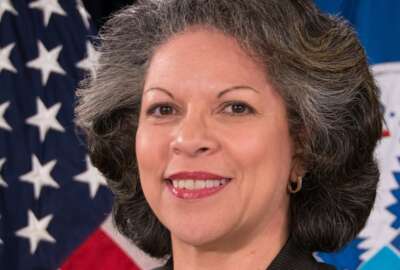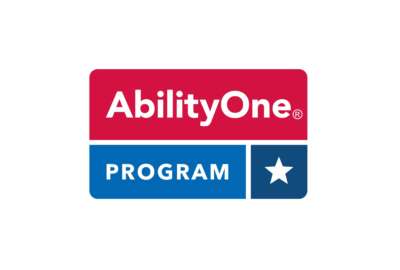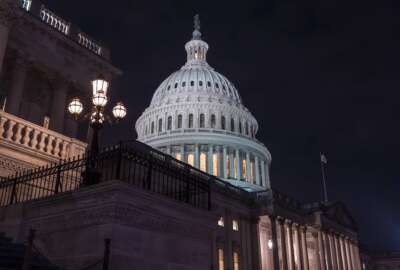NASA taking applications for next class of astronauts
Duane Ross, the manager of astronaut candidate selection and training at NASA, joined the Federal Drive with Tom Temin and Amy Morris to discuss the astronaut...
wfedstaff | June 4, 2015 12:47 pm
By Jack Moore
Federal News Radio
Even as the mythic shuttle program has closed shop, NASA says it’s still in the market for new astronauts.
As a matter of fact, next month the space agency will begin selection of its 2013 class of astronauts.
Duane Ross, the manager of astronaut candidate selection and training at NASA, told the Federal Drive with Tom Temin and Amy Morris the process from applicant to astronaut is a lengthy one.
It takes about five years from the initial steps to putting a newly minted crew member aboard a space craft — “if we hurry,” Ross said.
The 2013 class can expect to be in orbit by about 2015 or 2016, he added, headed for a familiar destination.
“They will be going to the space station just as we have been doing in the past,” Ross said. “We have folks there 24 hours a day, 365 days a year.”
For an applicant to get his or her foot in the door requires a bachelor’s degree in engineering, science or math plus several years working experience, NASA said. Having extensive experience flying high-performance jets also helps.
But even after applicants are selected, they face years of training and evaluations.
Ross said the training is based on a few key pillars: robotics and vehicle training, as well as flight readiness.
“Obviously, if you can’t fly this is probably the wrong job for you,” Ross said, adding that not all astronauts are trained pilots but they must be fully functioning crew members.
But in addition to the technical training, there is also less obvious prep work.
For one, astronauts must enroll in Russian language courses. U.S. astronauts train and often fly with their Russian counterparts, Ross said. There are also cosmonauts aboard the International Space Station.
Then there are the mental evaluations and psychological profilings as well, which perhaps only make sense as the astronauts likely spend weeks and months in isolated close quarters aboard the space station.
“The psychological preparedness has been a big part of space flight as long as I can remember,” Ross said.
Copyright © 2024 Federal News Network. All rights reserved. This website is not intended for users located within the European Economic Area.





